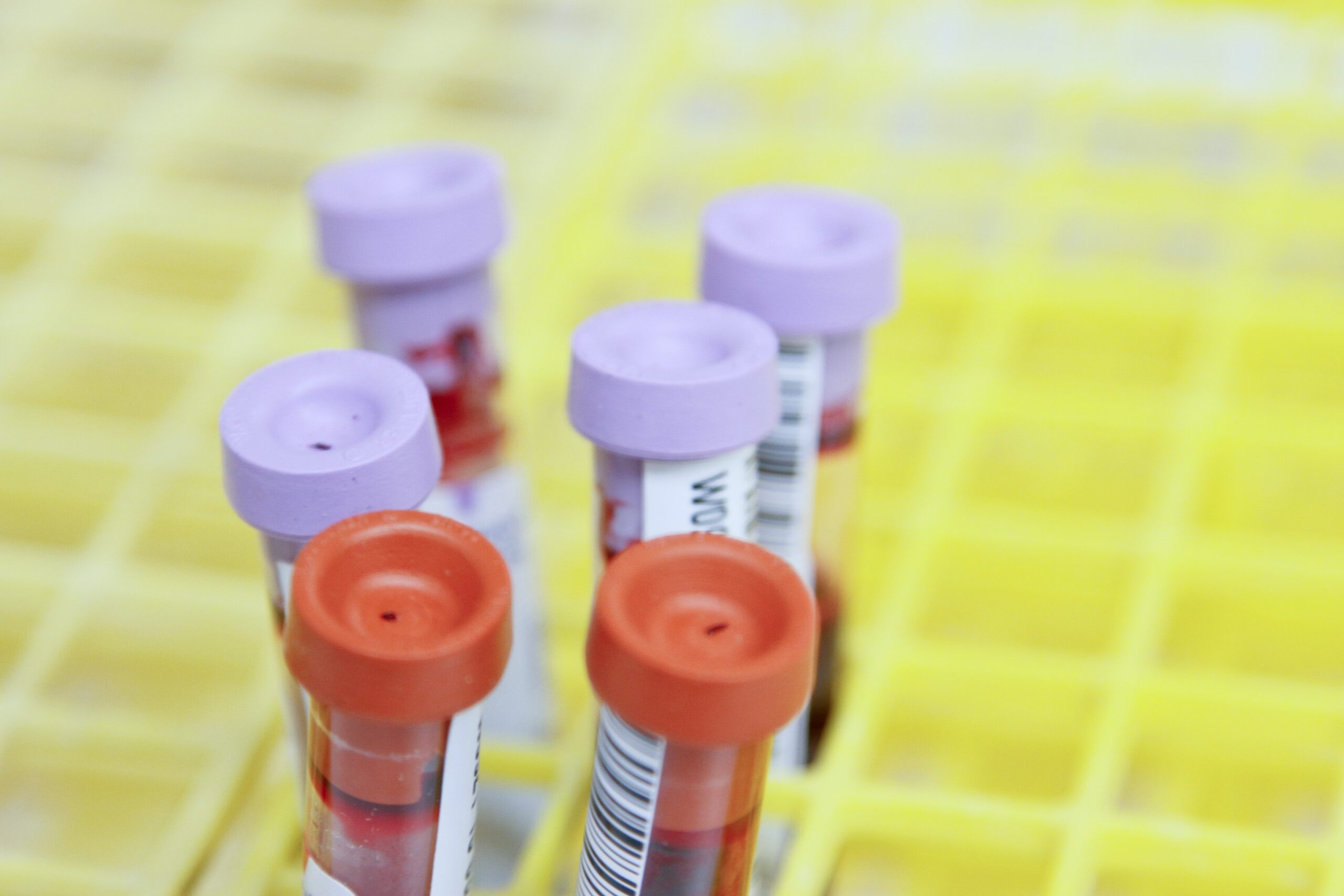So, you got a kidney transplant, what’s next?
 We researched the most commonly asked questions about post-kidney transplant expectations and uncovered these eight. Feel free to explore any or all of the answers.
We researched the most commonly asked questions about post-kidney transplant expectations and uncovered these eight. Feel free to explore any or all of the answers.
1. Recovery time: Recovery time after a kidney transplant can vary from person to person, but it typically takes about 6 to 12 weeks for a full recovery.
2. Medications: You will need to take immunosuppressant medications to prevent rejection of the new kidney. These medications will need to be taken for the rest of your kidney’s life.
3. Follow-up appointments: You will need to have regular follow-up appointments with your transplant team to monitor the function of the new kidney and to check for any potential complications.
4. Diet and lifestyle changes: You may need to make changes to your diet and lifestyle to help protect your new kidney, such as avoiding certain foods, beverages and tobacco products including smoking and vaping.
5. Possable complications: As with any surgery, there is a risk of complications after a kidney transplant. These can include infection, bleeding, blood clots, and rejection of the new kidney.
6. Return to normal activities: Gradually return to normal activities as you recover with the help of your healthcare team.
7. Long-term care: You will need to continue to work closely with your transplant team for long-term care and monitoring of your new kidney, to keep it healthy and functioning well.
8. Emotional support: A kidney transplant is a significant life event, and you may need emotional support from family, friends, support networks and/or faith groups during the recovery process.

Recovery time:
Recovery after a kidney transplant surgery typically involves a hospital stay of 3-7 days. This is followed by a period of significant monitoring and follow-up care, which will decrease in frequency over the next weeks and months. During this time, patients will be closely monitored for any complications and have medications adjusted to help prevent rejection of the transplanted kidney. Physical therapy may be recommended to help with mobility and strength. It can take several weeks to fully recover from the surgery and return to normal activities. It is important to closely follow the instructions and recommendations provided by the transplant team to ensure a successful recovery.
Further reading:
https://www.mayoclinic.org/tests-procedures/kidney-transplant/about/pac-20384777#:~:text=Most%20kidney%20transplant%20recipients%20can,checkups%20as%20you%20continue%20recovering.
🔝

Medications:
A kidney transplant is a surgical procedure performed to replace the function of diseased or damaged kidneys with a healthy donor kidney, which can significantly improve a patient’s quality of life. While the transplant surgery may be successful, medications are still necessary to reduce the risk of organ rejection and help the body adjust to the new kidney.
Immunosuppressants are the most common medication given after a kidney transplant to prevent the body from rejecting the new kidney. Typically, a doctor prescribes two or three immunosuppressants along with a corticosteroid. They must be taken daily as missing doses could lead to organ rejection. These medications must be monitored closely to ensure proper dosing to prevent organ rejection and keep the new kidney healthy.
Since patients with a transplanted kidney are at a higher risk for developing infections, prophylactic antibiotics and antivirals are prescribed to help lower the risk of infection. These prevent infections, which can include bladder, respiratory, or other common infections.
Diabetes is common in kidney patients, so it is important to monitor blood sugar levels to reduce the risk of complications from diabetes. To help control blood sugar levels, patients may have adjustments to their insulin or oral diabetes medications. Other medications, such as calcium or iron supplements, may also be prescribed to help the body adjust to the new kidney.
All patients with a transplanted kidney must be monitored regularly to ensure their medications are working properly and to check for any side effects or signs of infection. It is important to keep all appointments with the doctor and to follow the prescribed medication regimen.
Overall, medications are essential after kidney transplant, so it is important to adhere to the doctor’s instructions and to contact your transplant team if side effects or new symptoms develop.
Further reading:
https://health.ucdavis.edu/transplant/about/medications-after-kidney-transplant.html
🔝

Follow-up appointments:
Patients after a kidney transplant should have regular checkups with the transplant team, which may include blood tests, urine tests, and physical exams. The frequency of these appointments will vary depending on the individual case but are typically done a few times a week in the early months post-transplant and then gradually decrease over time.
During these appointments the patient’s blood pressure, kidney function, and other vital signs will be checked, and any necessary adjustments will be made to the patient’s medications. The patient will also be given instructions on how to care for the transplant site and how to recognize and respond to any signs of complications. It’s important to attend all appointments and follow the guidelines provided by the transplant team to ensure the success of the transplant.
Further reading:
https://www.templehealth.org/services/transplant/kidney-transplant/recovery#:~:text=Post%2DProcedure%20Recovery,your%20kidney%20and%20liver%20function.
🔝

Diet and lifestyle changes:
A kidney transplant is a major medical procedure, requiring patients to make significant changes to their lifestyle and eating habits to provide their body with the nutrients it needs, while avoiding foods that could cause complications. A solid understanding of diet after kidney transplantation is necessary to help a person maintain a healthy lifestyle and preserve the function of their new kidney.
Before and after the transplant, kidney patients should focus on achieving a well-balanced diet. People should strive to eat 5 to 9 servings of fruits and vegetables, 1 to 3 servings of whole grain foods, 2 to 3 servings of healthy proteins, and 3 to 4 servings of dairy products each day. Foods with high levels of sodium, phosphorus, and potassium need to be limited.
Sodium should be monitored closely, especially in the first three months following your transplant, to avoid long-term health complications. It is recommended that patients with one kidney should consume no more than 1,500 milligrams of sodium a day. Some of the foods that should be avoided include processed foods, fast food, and restaurant meals, which often contain high levels of salt.
Phosphorus and potassium are also important minerals for kidney transplant patients to understand and monitor. There may need to be a change in your diet, your doctor will inform you as needed.
Dehydration can be especially dangerous for transplanted kidneys, so be sure to drink enough fluids throughout the day to keep your body hydrated. In general, aiming for 6 to 8 eight-ounce glasses of fluid each day is a reasonable goal.
Eating a balanced diet and paying attention to nutritional labels are important steps after a kidney transplant. Eating enough fruits and vegetables will provide patients with important vitamins and minerals, while limiting foods high in sodium is essential for preventing long-term complications.
Further reading:
https://www.kidney.org/atoz/content/foods-avoid-after-transplantation#:~:text=After%20a%20kidney%20transplant%2C%20plan,grains%2C%20and%20plenty%20of%20water.
🔝

Possible complications:
A successful kidney transplant can help the recipient enjoy a near-normal quality of life, with improved health and longer life expectancy. However, even with advances in medical technology, the procedure comes with a range of potential complications that patients should understand before making the decision.
One of the most common complications of kidney transplant is rejection of the new organ. Your body’s natural defense mechanisms recognize foreign tissues, including the transplanted kidney, and try to fight it off as part of its immune reaction. The recipient’s immune system is usually suppressed with drugs to reduce the chances of rejection.
Infections are also a common complication of kidney transplants. The immunosuppressive drugs used to prevent rejection can also reduce the body’s natural defenses against some infections. Infections associated with a kidney transplant procedure can include urinary tract infections, cytomegalovirus, and even pneumonia.
Kidney transplant recipients are at an increased risk of developing certain types of cancer. Immunosuppressant medications used to prevent organ rejection can reduce the body’s natural defenses against certain cancers, such as lymphomas and Kaposi’s sarcoma. It’s important to keep an eye out for any unusual changes such as lumps and bumps or other signs of illness, and to alert your medical team if anything is noticed.
Kidney transplant recipients are also at an increased risk of developing high blood pressure, or hypertension. High blood pressure leads to an increased risk of stroke, heart attack, and other cardiovascular problems, so it’s important to keep an eye on blood pressure and take measures to keep it in control.
Lastly, there is a slight risk of the donor kidney failing over time. Dialysis may be necessary if the donor kidney fails, and a new kidney transplant may be necessary.
Further reading:
https://www.mayoclinic.org/tests-procedures/kidney-transplant/about/pac-20384777
🔝

Return to normal activities:
A successful transplant can bring with it hope and a second chance at life, but it is also a difficult and intricate procedure with a complicated recovery process following the surgery. However, diligent, and careful treatment post-surgery is important to ensure the best possible outcome for a full return to normal activity.
The immediate period after a kidney transplant is extremely important, the body is adapting to the new kidney, and your doctors will monitor and adjust treatments accordingly. During this time, activity is generally restricted to walking, as long periods of stillness can impede the patient’s recovery process. Depending on individual situations, it can also be advised to also limit lifting, carrying or strenuous physical activity, depending on the recommendation of your doctor.
After this initial recovery period, many people can return to normal activity. This can involve travelling and engaging in recreational activities, returning to work, or sports and exercise. The key is to pace yourself and listen to any advice given by your doctor or transplant team. Overdoing it too soon can lead to a delay to a full return to your normal routines.
It should be noted that a return to normal activity might involve some diligent monitoring. This means keeping up regular blood tests to check that the levels of medication are correct and that the kidney is not being overworked. Additionally, those who live a healthy lifestyle, such as those who have the benefit of a healthy diet and regular exercise, tend to recover a lot faster than those who live an unhealthy lifestyle.
Even after recovery, there are certain medications that will need to be taken as prescribed. It is important to remember that kidney transplants do not “cure” kidney failure, but rather provide patients with a healthier, better life.
With a successful kidney transplant, a person can find renewed hope and resilience and a road back to life.
Further reading:
https://www.nhsbt.nhs.uk/organ-transplantation/kidney/living-with-a-kidney-transplant/getting-back-to-activities/
🔝

Long-term care:
Kidney transplantation is a major surgical procedure used to treat end-stage renal disease and is one of the most significant medical advances of modern times. A successful transplant procedure restores the patient’s health and saves their life, however long-term care after the initial surgery is of the utmost importance to ensure the transplant remains successful.
Given the complex nature of the transplant process, proper long-term care after a kidney transplant is extremely important. The patient should work with their care team to develop a plan that they can follow to ensure the transplant remains successful. The plan should include regular follow-up appointments with the doctor to monitor the transplant and ensure it is still functioning properly. The plan should also include close monitoring of fluid intake and output, making any necessary lifestyle changes such as not smoking, eating a healthy diet, and following an appropriate exercise regimen.
In addition to the appointment follow-ups, the patient should be aware of any medical signs or symptoms that indicate a problem with the surgery and be sure to contact the doctor immediately. The patient should also be prepared to take any prescribed medications as directed to avoid any adverse side effects. Also, they should pay attention to any dietary changes.
Finally, patients should also take the appropriate measures to protect themselves and ensure the successful recovery of the transplant. This includes washing hands regularly and avoiding contact with anyone who has a contagious illness or condition.
In conclusion, long-term care after a kidney transplant is critical to ensure the overall success of the surgery. The patient should work closely with their care team to develop a plan of care and follow through with all appointments and instructions for post-operative care. Additionally, healthy lifestyle habits, such as eating a balanced diet and avoiding physical strain, can improve the chances of a successful transplant.
Further reading:
https://www.kidney.org/atoz/content/immunosuppresmallpox>
🔝

Emotional support
A kidney transplant can be a significant life event and it is important to have emotional support during the recovery process. Emotional support can come from family members, friends, or a support group of people who have undergone similar experiences.
Here are a few ways that emotional support can be helpful:
1. Coping with uncertainty: The recovery process can be uncertain and unpredictable, and having someone to talk to can help you cope with the uncertainty and anxiety.
2. Dealing with the physical and emotional changes: The physical and emotional changes that come with a transplant can be overwhelming and it’s important to have someone to talk to about how you’re feeling.
3. Adjusting to lifestyle changes: After a transplant, you may need to make changes to your diet and lifestyle, and it can be helpful to have someone to discuss these changes with and to help you adjust.
4. Long-term care: You will need to continue to work closely with your transplant team for long-term care and monitoring of your new kidney and having someone to talk to about this process can be helpful.
5. Emotional support groups: Joining a support group of people who have undergone similar experiences can be helpful as you can share your experiences, get advice, and learn more about what to expect during the recovery process.
It is important to remember that having emotional support can make a significant difference in the recovery process and it is also important to communicate with your medical team if you have any concerns or questions about your emotional well-being.
Further reading:
https://www.kidneyfund.org/kidney-donation-and-transplant/life-after-transplant-rejection-prevention-and-healthy-tips/mental-health-and-support-after-transplant
🔝







